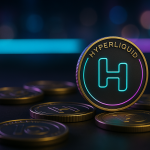In a striking move, the bankrupt cryptocurrency exchange Mt. Gox has transferred around $2.2 billion worth of Bitcoin to unidentified addresses. Blockchain analysis firm Arkham reported that on Monday, the exchange dispatched 32,371 BTC to two undisclosed wallets, marking a significant transaction in recent history for the platform.
What are the Details of the Transfer?
The primary allocation of this transfer involved 30,371 BTC directed to a wallet labeled “1FG2C…Rveoy,” while another 2,000 BTC was sent to a wallet known as “1Jbez…LAPs6.” Additionally, an internal movement of 2,000 BTC occurred between Mt. Gox’s cold wallets.
How Does This Compare to Previous Transfers?
This substantial transfer comes on the heels of a smaller transaction last week, where 500 BTC was sent to two unknown wallets. The timing of these actions has raised eyebrows as this marks the first major transaction from the exchange since September.
The recent movements from Mt. Gox appear to be a strategic part of an asset management plan aimed at settling debts with creditors. Industry experts speculate that these transfers may be linked to improving liquidity and facilitating the repayment process.
- Mt. Gox transferred a total of $2.2 billion in Bitcoin.
- Two major wallets received the bulk of the Bitcoin.
- This transfer is part of a broader debt repayment strategy.
- Previous smaller transfers occurred just weeks before this significant move.
While the intentions behind these transactions remain uncertain, they are viewed as crucial steps in the ongoing process of repaying creditors. The future of the newly created wallet addresses and any subsequent actions by Mt. Gox, however, continues to be a subject of speculation within the cryptocurrency community.












